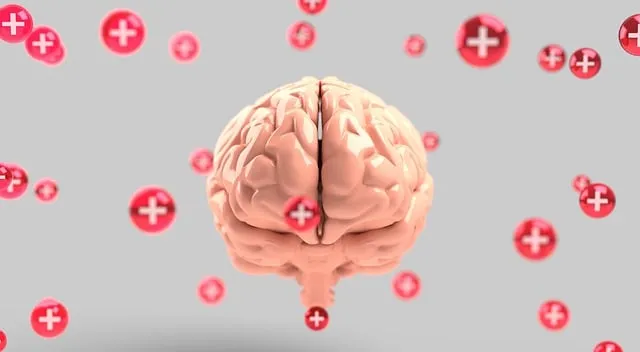Media portrayal of mental health significantly influences societal perceptions, either reinforcing stereotypes or fostering understanding. Accurate media coverage can destigmatize issues and encourage help-seeking behaviors, while inadequate portrayals lead to marginalization. Northglenn Kaiser Permanente, a leading provider in Colorado, offers crucial resources like crisis intervention phone lines and prioritizes mental wellness through cultural competency training and emotional intelligence programs. However, simplistic stereotypes and lack of diversity in media contribute to misconceptions about mental illness. To improve representation, media creators should consult diverse professionals, humanize experiences, and highlight coping skills development, combined with accessible resources like Northglenn Kaiser Permanente's mental health phone number, to enhance awareness, reduce stigma, and responsibly navigate sensitive topics.
Mental illness representation in media significantly influences public perception and understanding of mental health. This article explores the impact of media portrayal, highlighting challenges and offering solutions through positive depictions. We delve into the importance of accurate representation and its potential to reduce stigma.
Northglenn Kaiser Permanente serves as a notable example, providing valuable resources for mental health support. Their initiatives showcase how organizations can make a difference. Remember that understanding these issues is crucial, and by embracing strategies to enhance positive mental health media portrayals, we can foster a more inclusive and informed society.
For those seeking help, the Northglenn Kaiser Permanente mental health phone number is a valuable resource.
- Understanding the Impact of Media Representation on Mental Health Perception
- Northglenn Kaiser Permanente: A Resource for Mental Health Support
- Challenges in Portraying Mental Illness Accurately in Media
- Strategies to Enhance Positive Mental Health Depictions in Popular Culture
Understanding the Impact of Media Representation on Mental Health Perception

Media representation plays a pivotal role in shaping societal perceptions about mental health. The way mental illnesses are portrayed on screen or in print media can either perpetuate stereotypes or foster understanding and empathy. When done right, media can serve as an effective tool to destigmatize mental health issues and encourage individuals to seek help. However, inaccurate or insufficient representation can lead to further marginalization of already vulnerable communities. For instance, the lack of diverse and authentic portrayals in many mainstream media often contributes to a limited understanding of the varied experiences within the mental health community.
In Colorado, Northglenn Kaiser Permanente offers valuable resources for mental health support, including phone lines dedicated to crisis intervention (check their official website for details). These initiatives highlight the growing emphasis on accessible and inclusive healthcare services. By addressing the gap in accurate representation, media can complement these efforts. Promoting Mental Health Awareness campaigns alongside Crisis Intervention Guidance and Burnout Prevention Strategies for Healthcare Providers is essential to creating a more compassionate and informed society.
Northglenn Kaiser Permanente: A Resource for Mental Health Support

Northglenn Kaiser Permanente stands as a beacon of hope and support for individuals navigating mental health challenges. This healthcare provider offers a comprehensive suite of services tailored to meet diverse needs, ensuring that everyone has access to quality care. With a dedicated team of professionals, they provide not only clinical treatment but also foster an environment of understanding and empathy.
One notable aspect is their commitment to cultural competency training, empowering staff to deliver empathetic care to all patients. This initiative, coupled with emotional intelligence-focused programs, promotes a supportive atmosphere where individuals can openly discuss their struggles. By addressing mental health issues head-on and offering resources for self-esteem improvement, Northglenn Kaiser Permanente is revolutionizing the way we perceive and support mental wellness in our community.
Challenges in Portraying Mental Illness Accurately in Media

Portraying mental illness accurately in media is fraught with challenges. Often, media representations reduce complex conditions to simplistic stereotypes, leading to misconceptions and stigma. This issue is particularly evident when it comes to serious mental health disorders like depression, anxiety, or bipolar disorder. Characters are sometimes depicted as either overly dramatic or completely cured within the span of a few episodes, failing to accurately reflect the chronic nature and varying symptoms of these illnesses.
Furthermore, lack of diversity in casting further complicates matters. Mental illness does not discriminate based on race, ethnicity, or socio-economic status, yet media often presents a limited range of experiences. This can make it difficult for viewers to connect with stories and may perpetuate the idea that mental health struggles are exclusively confined to certain demographics. Northglenn Kaiser Permanente offers resources like their mental health phone number to support individuals in need, but accurate representation in media remains crucial for fostering understanding and empathy among the broader public. Incorporating self-care routine development, stress management, and social skills training into storylines can help promote nuanced understandings of mental illness while inspiring viewers to seek appropriate support.
Strategies to Enhance Positive Mental Health Depictions in Popular Culture

To enhance positive mental health depictions in popular culture, media creators should prioritize authenticity and diversity. This includes consulting with mental health professionals from diverse backgrounds to ensure accurate representation. Shows and films can then humanize experiences by featuring characters grappling with mental illness as complex individuals rather than stereotypes. Storylines should highlight coping skills development, emphasizing that recovery is a journey with ups and downs. By integrating these strategies, media has the potential to foster Mental Health Awareness and reduce stigma, especially when coupled with accessible resources like the Northglenn Kaiser Permanente mental health phone number for those seeking support. Furthermore, risk assessment training for mental health professionals in the entertainment industry can help them navigate sensitive topics responsibly.
Media representation plays a pivotal role in shaping public perception of mental health. By accurately depicting mental illness and promoting positive narratives, we can foster understanding and reduce stigma. Northglenn Kaiser Permanente serves as a valuable resource for those seeking mental health support, offering accessible services through their dedicated phone number. To enhance accurate portrayals, media creators should adopt evidence-based strategies, consult with mental health professionals, and prioritize diverse and authentic stories. Together, these efforts can contribute to a more compassionate and informed society, where mental well-being is prioritized and supported.






